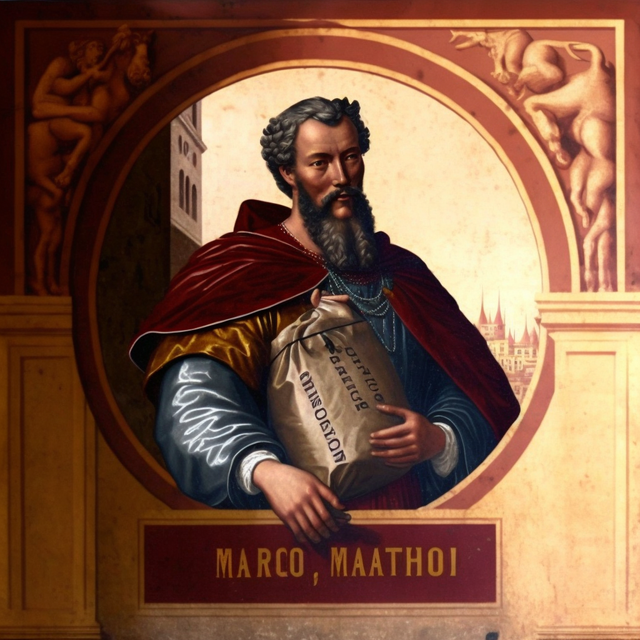
Marco Polo
Marco Polo was a famous explorer and merchant from Venice, Italy who is best known for his incredible journey to the Far East during the 13th century. He traveled over 17,000 miles from Europe to Asia, visiting various countries including China, India, and Mongolia. His journey lasted 24 years and during that time, he not only explored the unknown regions but also served as a diplomat, trader and a valuable spy for the Venetian Republic.
Polo's journey began in 1271 when he set off with his father, Niccolò Polo and uncle, Maffeo Polo. They had been merchants for many years and had previously traveled to the East, but this time they were joined by Marco, who was only 17 years old at the time. The Polo's arrived in the court of the Mongol ruler, Kublai Khan, in 1275. Kublai Khan was so impressed with the Polo's that he appointed them as his emissaries to the West, and tasked them with bringing back oil of the lamp, which is a medicine for his eyes. They traveled to the Holy Land and visited the Pope in Rome, but they returned to the East in 1282. They remained in China for the next 17 years and Marco Polo served as an official of the Mongol Empire. He was sent on several diplomatic missions, and he also had the opportunity to explore the country extensively.
During his time in China, Polo was able to document the customs, culture, and geography of the country in great detail. He wrote about the Great Wall of China, the Grand Canal, the Yellow River, and the cities of Hangzhou and Beijing. He also described the use of paper money, the art of printing, and the manufacture of porcelain. He wrote about the different religions and the different ethnic groups that lived in China. He also described the different types of animals, plants, and minerals that he encountered. Polo's accounts of China were so detailed that many people in Europe believed that he had exaggerated or invented them.
Polo's journey ended in 1295 when he returned to Venice with his father and uncle. They were captured by the Genoese in a sea battle, and Polo was taken prisoner. While in prison, Polo dictated his travels to a fellow prisoner, Rustichello of Pisa, who wrote them down in a book called "The Description of the World," also known as "Il Milione." The book was an instant success, and it was translated into many languages. It was a major source of information about the East for Europeans and it played a significant role in the Age of Exploration.
After his release, Polo retired to Venice where he lived a peaceful life and died in 1324. His book, however, continued to be widely read and had a profound influence on the European perception of the East. Polo's journey was one of the greatest of the Middle Ages and his accounts of the East were the first that most Europeans had ever read. His journey and accounts opened the door for further explorations, trade and diplomatic relations between Europe and Asia. His legacy lives on as his book is still widely read and studied today, and his name continues to be synonymous with exploration, adventure and trade.
Subject Contributions
- Economics
- Exploring
- Culture
- Customs